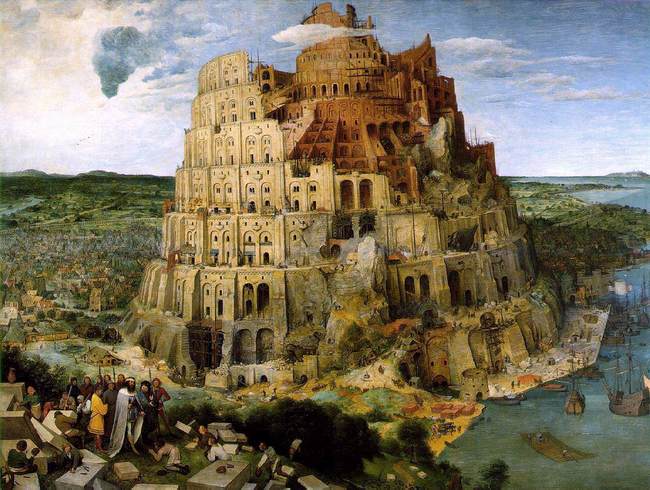We support our Publishers and Content Creators. You can view this story on their website by CLICKING HERE.

The first 11 chapters of the book of Genesis are about God setting up His plan for saving a sinful world. Those chapters culminate in the story of the Tower of Babel, in which the prideful people try to build a ziggurat to heaven, so He confuses them with different languages.
Advertisement
Now the whole earth had one language and the same words. And as people migrated from the east, they found a plain in the land of Shinar and settled there. And they said to one another, “Come, let us make bricks, and burn them thoroughly.” And they had brick for stone, and bitumen for mortar. Then they said, “Come, let us build ourselves a city and a tower with its top in the heavens, and let us make a name for ourselves, lest we be dispersed over the face of the whole earth.” And the Lord came down to see the city and the tower, which the children of man had built. And the Lord said, “Behold, they are one people, and they have all one language, and this is only the beginning of what they will do. And nothing that they propose to do will now be impossible for them. Come, let us go down and there confuse their language, so that they may not understand one another’s speech.” So the Lord dispersed them from there over the face of all the earth, and they left off building the city. Therefore its name was called Babel, because there the Lord confused the language of all the earth. And from there the Lord dispersed them over the face of all the earth.
Genesis 11:1-9 (ESV)
The ESV Study Bible notes tell us: “This episode is significantly more important than its length suggests. It presents a unified humanity using all its resources to establish a city that is the antithesis of what God intended when he created the world. The tower is a symbol of human autonomy, and the city builders see themselves as determining and establishing their own destiny without any reference to the Lord.”
Advertisement
It’s hard to miss the significance of God confusing the language of the people. If they couldn’t communicate, they couldn’t accomplish this ambitious monument to their pride. God also spread people out over the earth so that they weren’t concentrated in one place.
In the next few chapters, God set His plan of salvation into motion by calling Abram, whom He would rename Abraham, to start a new nation that would serve as God’s chosen people.
“And [the Lord] brought [Abram] outside and said, ‘Look toward heaven, and number the stars, if you are able to number them.’ Then he said to him, ‘So shall your offspring be.’ And he believed the LORD, and he counted it to him as righteousness,” Genesis 15:5-6 tells us.
Related: Sunday Thoughts: From Rebellion to Sacrifice
Abraham was the father of the Jewish nation, but he also represents God’s promise to all people of the salvation that came through Jesus. After Jesus ascended into heaven, people saw an undeniable parallel to Genesis:
When the day of Pentecost had come, they were all together in one place. And suddenly from heaven there came a sound like the rush of a violent wind, and it filled the entire house where they were sitting. Divided tongues, as of fire, appeared among them, and a tongue rested on each of them. All of them were filled with the Holy Spirit and began to speak in other languages, as the Spirit gave them ability. Now there were devout Jews from every nation under heaven living in Jerusalem. And at this sound the crowd gathered and was bewildered, because each one heard them speaking in the native language of each. Amazed and astonished, they asked, “Are not all these who are speaking Galileans? And how is it that we hear, each of us, in our own native language? Parthians, Medes, Elamites, and residents of Mesopotamia, Judea and Cappadocia, Pontus and Asia, Phrygia and Pamphylia, Egypt and the parts of Libya belonging to Cyrene, and visitors from Rome, both Jews and proselytes, Cretans and Arabs—in our own languages we hear them speaking about God’s deeds of power.” All were amazed and perplexed, saying to one another, “What does this mean?”
Acts 2:1-12 (NRSV)
Advertisement
God has separated people by language because they tried to do things on their own without His guidance. When He sent His Son to be the atoning sacrifice for our sins, He proved that the gospel was for everybody by giving the Apostles the power to speak other languages so that they could share the news of Jesus with the world.
It’s another one of those moments of symmetry in the Bible that make you realize how grand and wonderful God’s story is. And it makes me want to read His Word even more. How about you?

 Conservative
Conservative  Search
Search Trending
Trending Current News
Current News 







